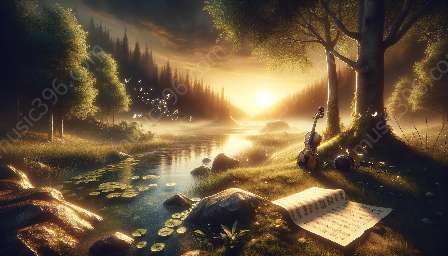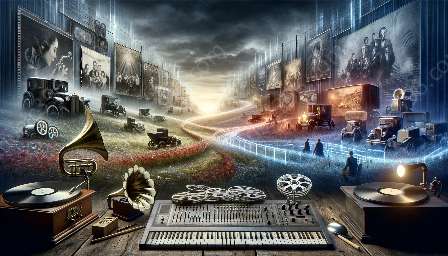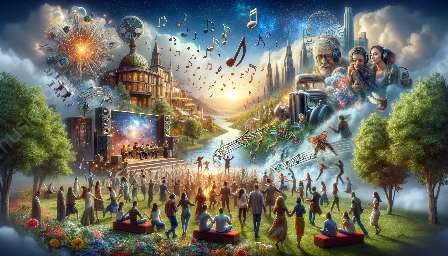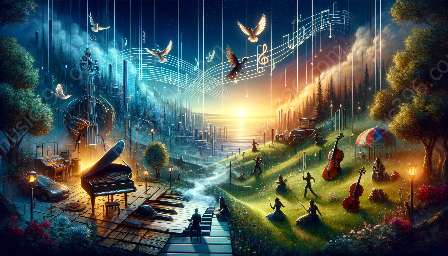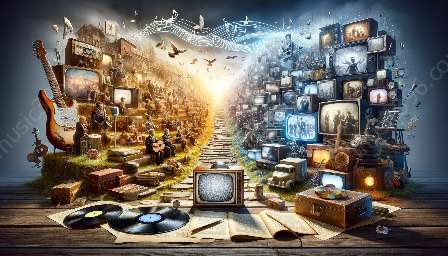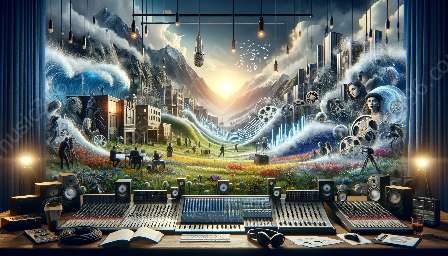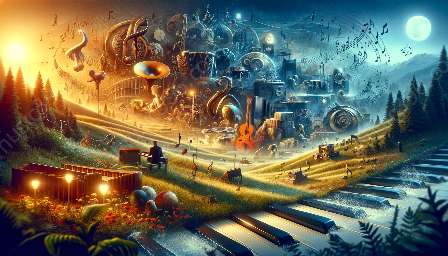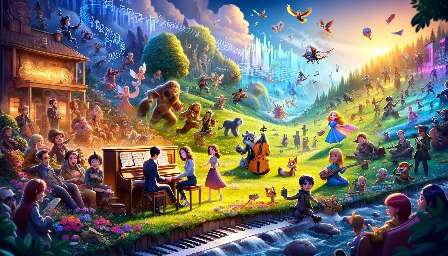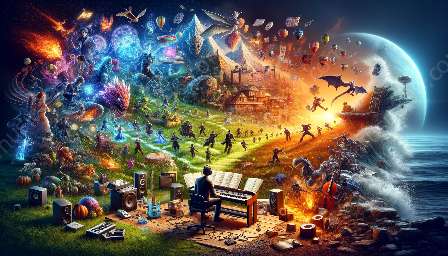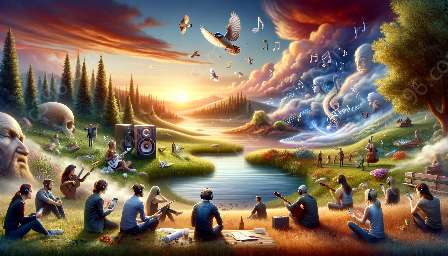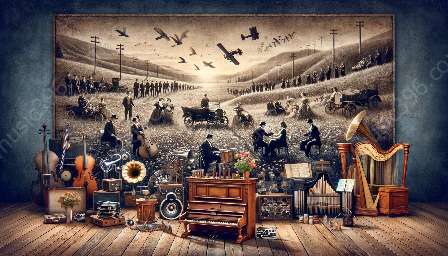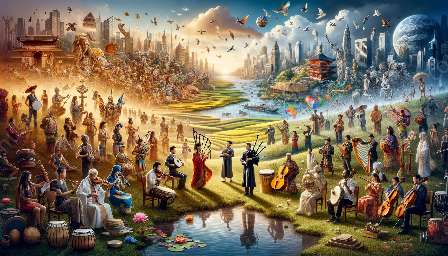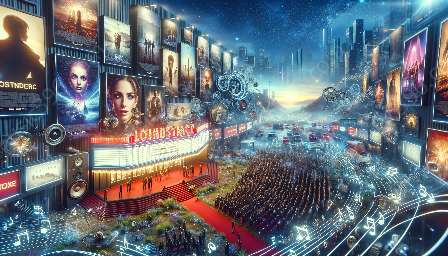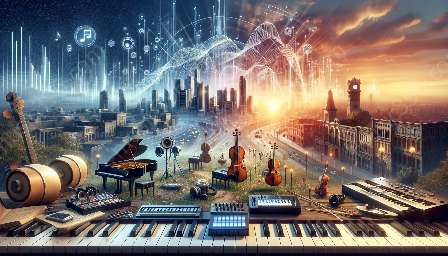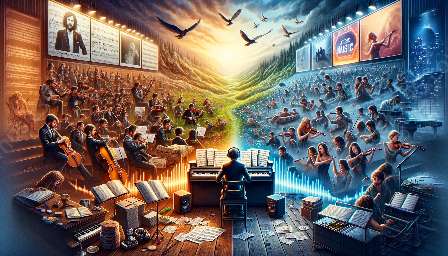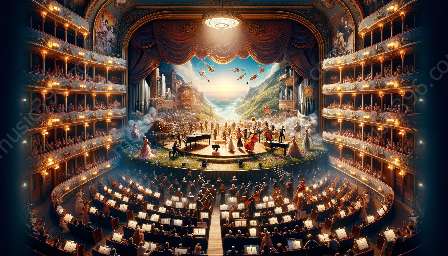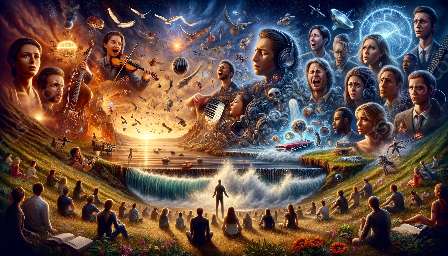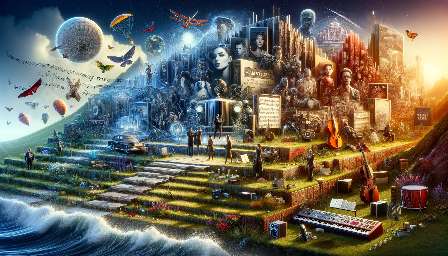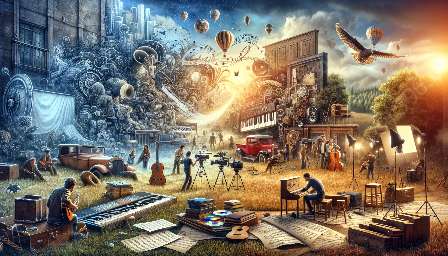Creating soundtracks for historical films is a complex and fascinating process that involves meticulous attention to detail and a deep understanding of both the historical context and the emotional impact of the story. In this article, we will delve into the art of crafting soundtracks for historical films, exploring its significance in the history of movie soundtracks and its role in enhancing the overall cinematic experience.
Understanding the Historical Context
One of the key elements in creating soundtracks for historical films is the understanding of the historical context in which the story is set. This involves extensive research into the time period, the cultural nuances, and the significant events that shaped the era. By immersing themselves in the historical backdrop, composers and sound designers gain a deeper appreciation for the emotional landscape of the narrative and the musical elements that can capture the essence of the era.
Historical Authenticity
Accuracy and authenticity are paramount when it comes to crafting soundtracks for historical films. The music must resonate with the time and place depicted in the movie, evoking the spirit of the era and resonating with the audience on an emotional level. This often requires the use of traditional instruments, ancient melodies, and authentic musical styles that reflect the culture and ethos of the period.
Emotional Resonance
Beyond historical accuracy, the soundtrack for a historical film must also amplify the emotional resonance of the narrative. Whether it's a tale of triumph, tragedy, love, or war, the music must amplify the audience's emotional journey, guiding them through the highs and lows of the story. By intertwining historical authenticity with emotional depth, the soundtrack becomes an essential component in bringing the past to life on the silver screen.
Impact on the History of Movie Soundtracks
The evolution of soundtracks for historical films has significantly influenced the broader history of movie soundtracks. As filmmakers and composers strive for greater authenticity and emotional impact, they push the boundaries of storytelling through music. This has led to a renaissance in the art of film scoring, with historical films often pioneering new approaches to integrating music with the narrative, influencing the broader landscape of cinematic music composition.
Technical Innovations
Creating soundtracks for historical films has also spurred technical innovations in the field of music composition and sound design. Composers and sound engineers have embraced new technologies and recording techniques to capture the nuances of historical instruments and musical styles. This constant pursuit of innovation has not only elevated the production quality of historical film soundtracks but has also set new standards for excellence in the broader domain of movie soundtracks.
Cultural Reverberations
Historical film soundtracks often serve as a bridge between different eras and cultures, fostering a deeper appreciation for diverse musical traditions and historical legacies. By showcasing the richness of historical music, these soundtracks bring attention to forgotten or underappreciated musical styles, contributing to a broader cultural dialogue and enriching the tapestry of movie soundtracks as a whole.
Enhancing the Cinematic Experience
Ultimately, the impact of creating soundtracks for historical films extends far beyond the confines of the movie itself. Historical film soundtracks have the power to transport audiences to different eras, evoke a wide range of emotions, and create lasting impressions long after the credits have rolled. By encapsulating the essence of history in music, these soundtracks enrich the cinematic experience, leaving a profound and enduring impact on viewers.
Immersive Storytelling
Historical films often rely on soundtracks to immerse audiences in the time and place of the narrative, creating a multi-sensory experience that transcends the visual aspect of filmmaking. The music becomes a vital storytelling tool, shaping the audience's perception and understanding of historical events, characters, and cultural landscapes.
Legacy of Historical Soundtracks
Many historical film soundtracks have become iconic in their own right, leaving an indelible mark on popular culture and the cinematic landscape. From the epic compositions of period dramas to the haunting melodies of wartime stories, these soundtracks stand as enduring testaments to the power of music in capturing the essence of history and enriching the legacy of movie soundtracks.

